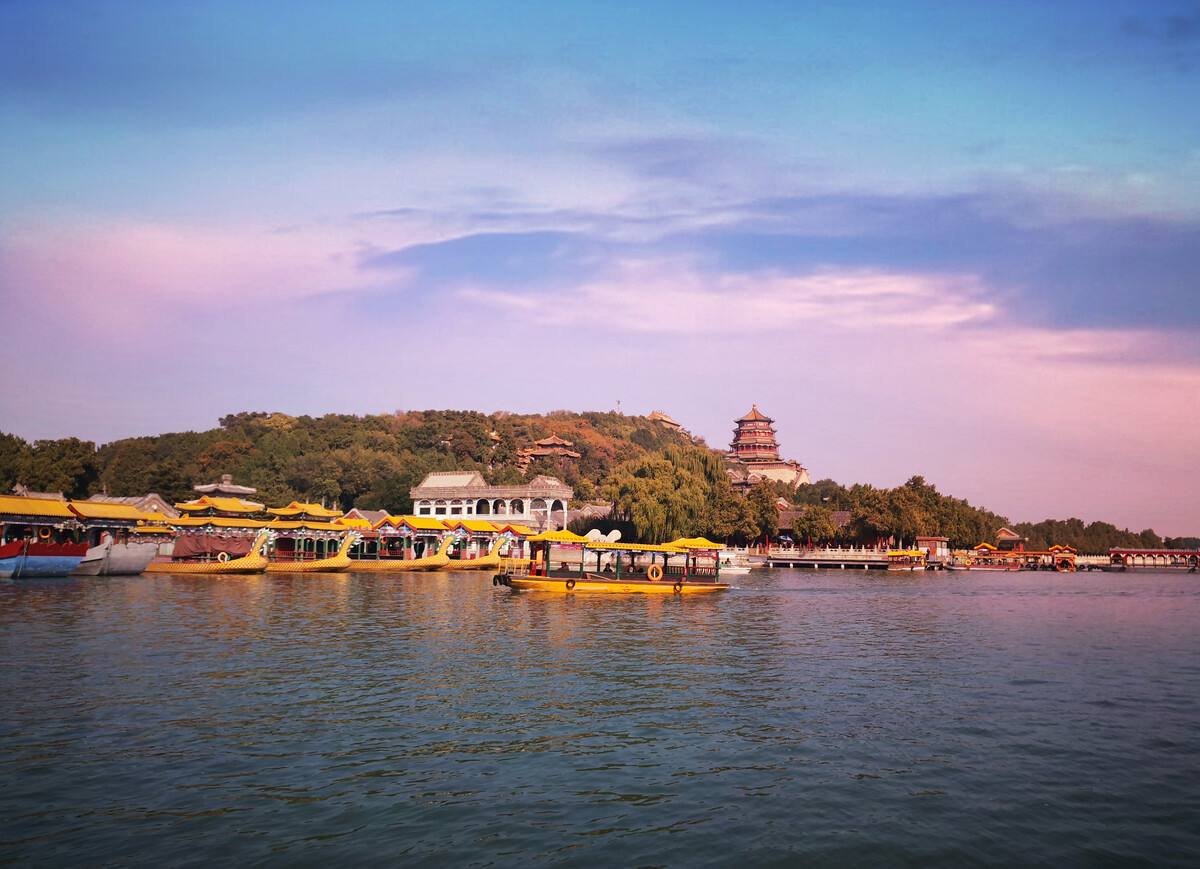Overview
Chinese Name: 颐和园
English Name: The Summer Palace, Yi He Yuan
Location: Haidian District, Beijing
Type: Imperial gardens
Rating Level: AAAAA (5A)
Website: 颐和园官方网站 (summerpalace-china.com)

Brief Introduction
The Summer Palace is originally named “Qingyiyuan” 清漪园, located in the northwest outskirts of Beijing, 15 Km from the city, and is the largest existing and the best-preserved royal garden in China.
In March 1961, it was announced as one of the first batches of National key cultural relics protection units, along with Chengde Mountain Resort, Humble Administrator’s Garden, and Lingering Garden, as China’s four famous gardens.
In December 1998, UNESCO included the Summer Palace on its World Heritage List. It declared the Summer Palace “a masterpiece of Chinese landscape garden design. The natural landscape of hills and open water is combined with artificial features such as pavilions, halls, palaces, temples and bridges to form a harmonious ensemble of outstanding aesthetic value”.

The Summer Palace was an imperial garden in the Qing dynasty. Inside includes Longevity Hill 万寿山, Kunming Lake昆明湖, Seventeen Hole Bridge十七孔桥 and so on. It covers an expanse of 2.9 square kilometers, three-quarters of which is water.

Based on the scenery of the West Lake as the chief source, the garden absorbs the design method as well as the artistic conception of the traditional southern Chinese garden thus being a large-scale landscape garden. It takes the reputation of the “museum of the royal garden”.
On January 21, 2022, the Beijing 2022 Olympic and Paralympic Winter Games torch relay route was officially released. On February 4, it was delivered at the Summer Palace.
What is worth to visit and see?
Main attractions
The Summer Palace’s largest features are Longevity Hill and Kunming Lake. Palaces, halls, pavilions, the long corridor, and the marble boat are the main things to see in the Summer Palace gardens.
As one of the art treasures of Chinese ancient gardens, it displays splendid sights all year round.
The Long Corridor长廊 is a covered walkway, 728 meters long that runs by Kunming Lake at the southern foot of Longevity Hill. There are more than 14,000 paintings on each beam of the corridor, including landscapes, flowers, birds, fish and insects, and literary allusions.

The Marble Boat 清晏舫, is a large stone boat on the lake at the west end of the Long Corridor, meaning ” peace and tranquility under heaven”, is the only western-style architecture in the Summer Palace.

Originally built during the reign of Emperor Qianlong and burned down by the Anglo-French Allied Forces in 1860, the Fo Xiang Ge佛香阁 was rebuilt during Emperor Guangxu’s reign (1875-1908).

Art collections
During the Period of The Garden of Clear Yi, Emperor Qianlong collected many articles and plays, such as Shang and Zhou bronzes, Tang, Song, Yuan, and Ming porcelain jades, calligraphy, and painting. At that time, more than 40,000 pieces of furnishings were recorded, and specially set up a Collection of Furnishings陈设清册 for archival management
In1860, five large imperial gardens in the northwest suburbs of Beijing, including the Qingyiyuan, were brutally burned and looted by the British and French allied forces. According to the inventory looted by the British and French allied forces, there were only 530 articles in the garden, and many of them were dilapidated.

In 1900, when the Eight-power Allied forces invaded Beijing, the Summer Palace was devastated again and its cultural relics were destroyed and looted. In 1902, Cixi 慈禧restored the Summer Palace and enriched its furnishings greatly.

After the founding of the People’s Republic of China, the Collection of cultural relics in the Summer Palace numbered more than 40,000 pieces, including bronzes, jades, porcelain, wood, lacquer, calligraphy and painting, ancient books, enamel, Clocks, Musical Instruments, root carvings, and miscellaneous items.

It almost covers all categories of Chinese cultural relics handed down from ancient times, and there are many foreign cultural relics; In terms of value, there are more than 20,000 state-level cultural relics.